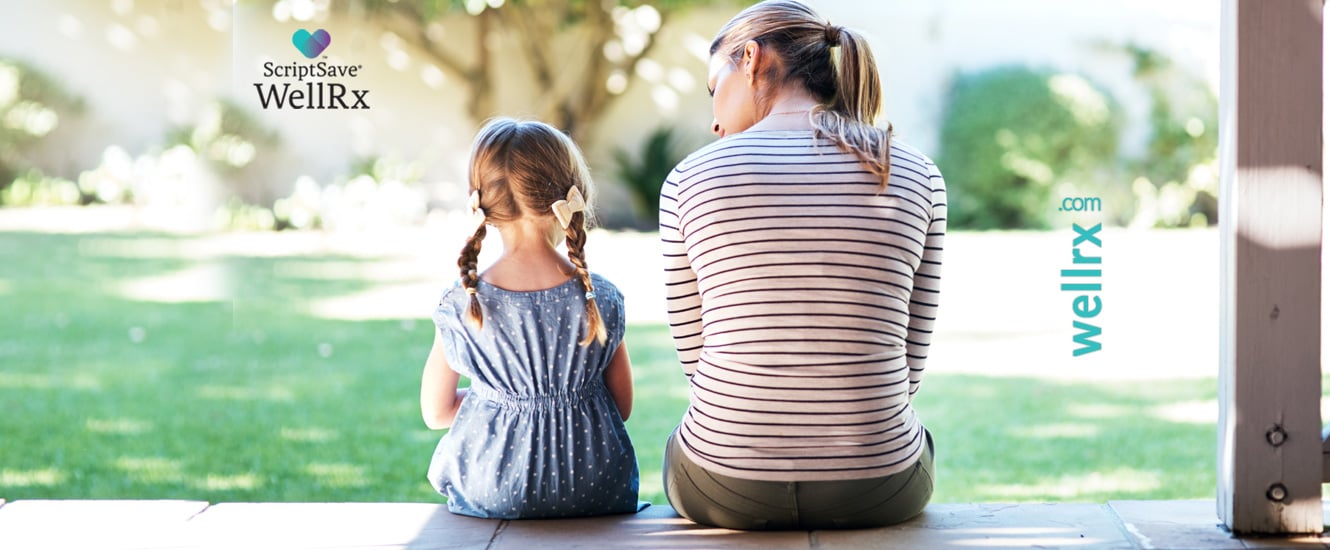All kids experience occasional worry and nervousness at times. But if your child seems to struggle with excessive worry or has an anxiety disorder, it can be hard to help them remain calm, stay focused, and engage in day-to-day life. Anxiety disorders are one of the most commonly diagnosed disorders in children—in fact, the Centers for Disease Control and Prevention reports that around 4.4 million American children have diagnosed anxiety. For most kids without anxiety disorders, episodes of mild anxiety usually pass, but anxiety can persist, especially if it remains unaddressed. Here’s how you can help your child calm down and more effectively cope with and manage their feelings of anxiety.
Hear Their Feelings
What seems like no big deal to an adult can feel like a crisis to a child. Avoid minimizing their concerns or saying things like, “Don’t worry, it’s nothing.” To a child with anxiety, things feel scary and uncontrollable. Ask your child what they’re worried about and take their feelings seriously. Let them know that you hear their concerns and you love them. Empathize with them in ways that are appropriate to the situation by saying things like, “I can see why you might be worried about that,” or “It sounds like you’re feeling really scared right now.”
Help Them Relax
First and foremost, you'll want to help your child relax because they’re not going to be able to do anything else until they calm down. Put your hands on their shoulders (if they are usually calmed by physical contact), look into their eyes, and tell them to take a few deep belly breaths together with you. Take a look together at this YouTube video from NPR, in which Cookie Monster learns how to breathe to reduce anxiety and gets some additional tips to calm down and relax.
Shake It Off
Sometimes it can be a good idea to just “shake it off” as a way of physically releasing pent-up worry and tension. Invite your child to imagine that they can shake off all their worries by physically moving and jumping around, or even try bouncing it out on a trampoline if you have one. Let them know that shaking is how many animals in the wild get rid of stress. Shaking is actually a natural way of releasing tension and restoring homeostasis by helping to reduce levels of adrenalin and cortisol, the body’s natural stress hormones.
Explain Anxiety and Worry
The way you do this depends on your child’s age, but it can be helpful to educate your child about anxiety and the way it affects our bodies and minds. You might explain that everyone worries at times and that while it can feel very scary, anxiety is just a temporary feeling that passes after some time. You could also explain that anxiety is like a wave that swells up and then goes away again. If they have a specific concern, like the pandemic or a fear of getting sick, it can be helpful to talk about it directly. Avoid sugar-coating or minimizing the issue, but put things in a perspective that they can understand.
Use a Worry Box
A worry box can be a helpful way to release fears, especially at night when anxiety tends to hit the hardest. The box acts as a container for your child’s worries, so they can let go of them before bedtime. Decorate a small box (like an empty tissue box) and have them write down their fears on a small piece of paper each night before they go to bed, then put the paper in the box. Let them know that the worry is going to stay in the box until morning. Then talk about something positive to help them focus on other things, or read them a story until they fall asleep.
Help Them Figure Out Solutions
Developing strategies to help manage their feelings and face fears can help your child feel empowered. It may be easier to give in and allow your child to avoid the anxiety-provoking situation, but that only fortifies the fear and shows them that they don’t have to face things that are scary. If your child is anxious about going to school or giving an oral presentation in front of their class, for example, it’s not helpful to tell them to stay home or avoid the assignment. Instead, help them figure out what’s causing the fear and what actions they can take to face the situation with bravery. For example, you could role-play the situation and model how they can take a few deep breaths before the presentation and visualize that everything turns out okay. Or you might want to share about a time where you “felt the fear but did it anyway.”
Above All: Remain Calm
Anxious children need to know that the adults in their lives can handle things and stay in control. Anxiety can be contagious, so it’s important for you to remain calm and balanced. Kids pick up on different signals from adults that you might think pass by unnoticed, and they’ll often imitate the behaviors that you display. Think about how you manage your own anxiety—your actions often speak louder than words, so model appropriate behaviors as much as possible. Try to avoid being overprotective or over-helpful, as this can reinforce your child’s belief that the world is scary and prevent them from developing self-reliance.
If you feel that your child’s anxiety is becoming worse or you notice that they’re struggling a bit more than usual, then it can be helpful to consult your child’s pediatrician or a qualified child mental health professional. If anxiety is affecting your child at school, you might want to talk to their teacher and the school counselor or social worker to see what support they might be able to offer as well.
Stacy Mosel, LMSW, is a licensed social worker, psychotherapist, and substance abuse specialist. After receiving a bachelor’s degree in music from the State University of New York at Stony Brook, she continued her studies at New York University, earning a Master of Social Work degree in 2002. She has extensive training in child and family therapy and in the identification and treatment of substance abuse and mental health disorders. Currently, she is focusing on writing in the fields of mental health and addictions, drawing on her prior experiences as an employee assistance program counselor, individual and family therapist, and assistant director of a child and family services agency.
References:
https://www.cdc.gov/childrensmentalhealth/data.html
https://www.npr.org/2019/10/23/772789491/how-to-help-a-child-struggling-with-anxiety
https://kidshealth.org/en/parents/anxiety-disorders.html
https://www.youtube.com/watch?v=j0YDE8_jsHk
https://www.psychologytoday.com/intl/blog/in-the-body/201910/when-trauma-gets-stuck-in-the-body
https://www.acesconnection.com/blog/therapeutic-tremoring-shake-off-stress-and-trauma
https://www.nhs.uk/mental-health/children-and-young-adults/advice-for-parents/anxiety-in-children/
https://youngminds.org.uk/blog/how-to-make-a-worry-box-a-guide-for-parents/
https://healthyfamilies.beyondblue.org.au/age-6-12/mental-health-conditions-in-children/anxiety/strategies-to-support-anxious-children













 Store & manage your medication list
Store & manage your medication list Medication pricing updates
Medication pricing updates Pill & refill reminders
Pill & refill reminders Medication journal & mood log
Medication journal & mood log